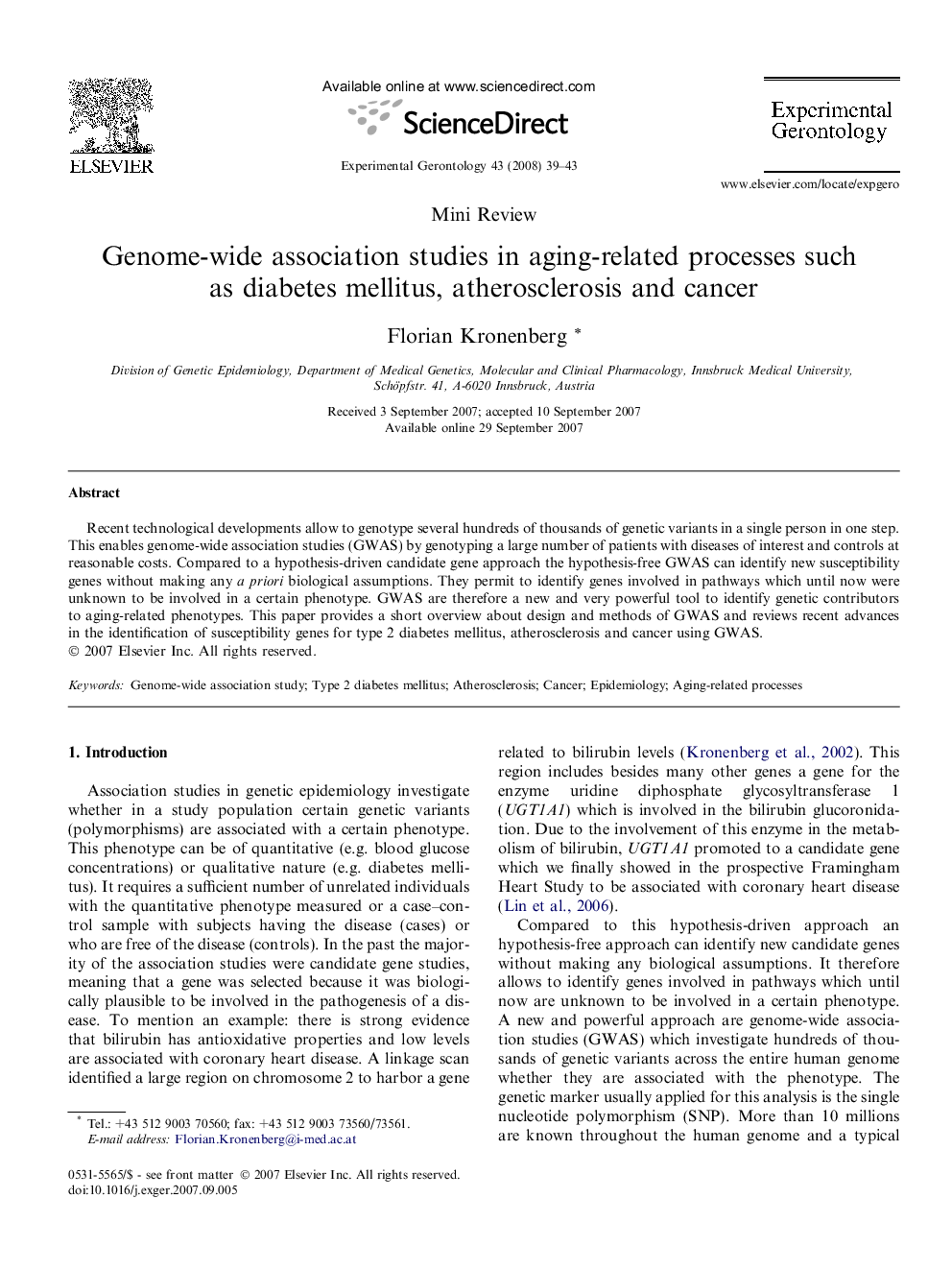| Article ID | Journal | Published Year | Pages | File Type |
|---|---|---|---|---|
| 1907385 | Experimental Gerontology | 2008 | 5 Pages |
Recent technological developments allow to genotype several hundreds of thousands of genetic variants in a single person in one step. This enables genome-wide association studies (GWAS) by genotyping a large number of patients with diseases of interest and controls at reasonable costs. Compared to a hypothesis-driven candidate gene approach the hypothesis-free GWAS can identify new susceptibility genes without making any a priori biological assumptions. They permit to identify genes involved in pathways which until now were unknown to be involved in a certain phenotype. GWAS are therefore a new and very powerful tool to identify genetic contributors to aging-related phenotypes. This paper provides a short overview about design and methods of GWAS and reviews recent advances in the identification of susceptibility genes for type 2 diabetes mellitus, atherosclerosis and cancer using GWAS.
